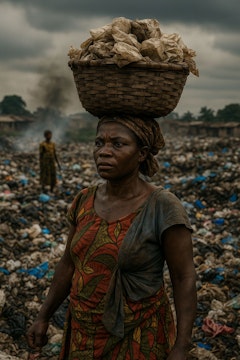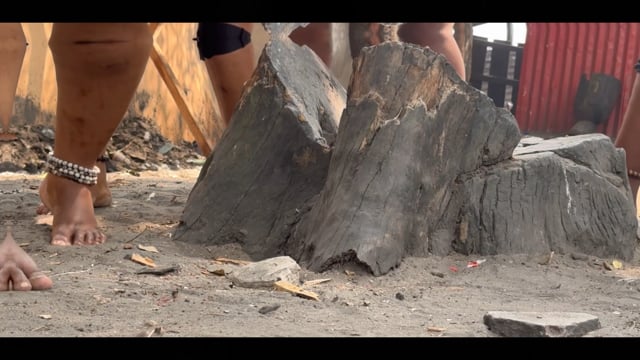Environmental Interbeing
The Pygmies are a people of hunter-gatherers who live in a forest environment away from the modern world
The Pygmies are a people of hunter-gatherers who live in a forest environment away from the modern world
They live in traditional Pygmy society, and have an in-depth knowledge of the forest and its flora and fauna. Pygmies often live in small communities and have unique traditions, including songs, folk dances and spiritual practices.
A people who have long lived without any contact with the outside world, living among themselves and protected by the forest. The forest was their habitat, their spiritual mother and their source of food. However, over the past forty years or so, some regions have witnessed intense logging activity, penetrating deeper and deeper into the forest. It is now clear that, far from being a factor of development, this intense industrial exploitation constitutes a threat to the life and survival of the Pygmy population. This threat directly affects the lives of the Pygmies in several ways.
The first consequences of pygmy logging are physical. By reaching increasingly remote areas of the forest, this excessive exploitation of nature leads to a progressive impoverishment of the forest ecosystem. As a hunter-gatherer people, the Pygmies are seeing their food system go into recession, and the food security enjoyed by the community is experiencing disruptions that are detrimental to their lives. Trees rich in fruit and bark have been felled, others knocked down by bulldozers, a multitude of seeds needed for food have been destroyed, and so on. In addition, traps set for animals are crushed, nets swept away, game takes refuge deeper and deeper in the forest, which also affects the pygmy population's natural nutrition and medicine.
In addition to the consequences that physically threaten the Pygmies, other issues are linked to this exploitation: spiritual and moral issues. First of all, the Pygmies' sacred sites are often desecrated by the presence and passage of vehicles, when they are not simply destroyed by bulldozers. The rhythms of traditional practices are also disrupted, as they are normally carried out in close association with the forest.
These massive changes considerably disrupt the Pygmies' habitat and living environment, while generally creating conflicts between them and their Bantu neighbors, who also pollute their forests.
In traditional Pygmy society, women are synonymous with good luck and wisdom. Pygmy men go out of their way to be good to their wives, as Pygmy women play a crucial role in the life of the group, at all levels, even though Pygmy society generally values the individual as a whole and not according to gender. Equality of opportunity is a fact of Pygmy life; women have the right to speak, and they use it.
Pygmies share a traditional way of life based on hunting and gathering forest products, as well as a common culture that places great importance on protecting the environment, including on a spiritual level. Thus, when they go hunting, women perform certain rites to bring good luck and protect their environment. These beliefs continue in the Pygmy environment, where women are and remain the backbone of society, and where their influence is great. It is women who take care of their environment, both naturally and, above all, spiritually, as rituals have the same function among Pygmies.












